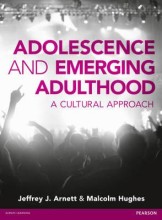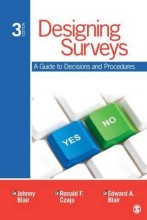Summary: Survey Data Analysis
- This + 400k other summaries
- A unique study and practice tool
- Never study anything twice again
- Get the grades you hope for
- 100% sure, 100% understanding
Read the summary and the most important questions on Survey Data Analysis
-
Introduction in survey data analysis
This is a preview. There are 36 more flashcards available for chapter 16/10/2016
Show more cards here -
What is a survey?
A survey collects information about a well-defined population. This population need not necessarily consists of persons.
A survey collects information on only a small part of the population:
* a systematic method for data collection
* a sample from a finite population. -
What is a cencus or complete enumeration?
A cencus or complete enumeration is a way to obtain information about a population by collecting data about all its elements. -
What are three disadvantages of a census?
1. It is very expensive.
2. It is very time-consuming (this affects the timeliness of the results. Less timely information is less useful).
3. Large investigations increase the response burden on people. -
What is the object of a survey?
To construct quantitative descriptors of population (members) -
Where depends the data accuracy of a survey on?
On design and process -
What is a survey instrument?
Survey questionnaire, instructions, question, response scales. -
What is a population?
A population is a group of people whose beliefs, attitudes or activities are being studied. -
What is an observational unit or element?
An observational unit or element is a single measurement from the population. -
What is a sampling unit?
A sampling unit is a collection of units which can be sampled. -
What is needed in order to make inferences about a population based on a sample?
It is needed that the sample is selected using probability sampling. A random selection procedure uses an element of chance to determine which elements are selected, and which are not. If it is clear how this selection mechanism works and it is possible to compute the probabilities of being selected in the sample, survey results allow making reliable and precise statements about the population as a whole.
- Higher grades + faster learning
- Never study anything twice
- 100% sure, 100% understanding
































